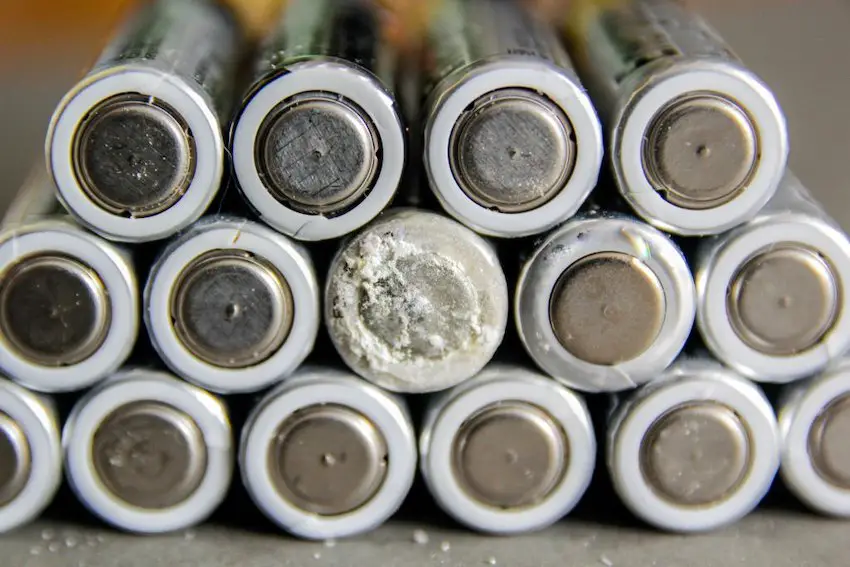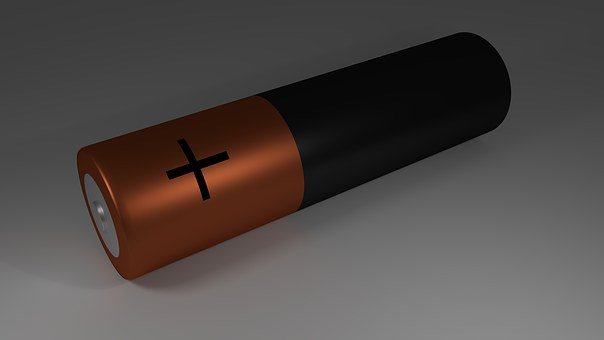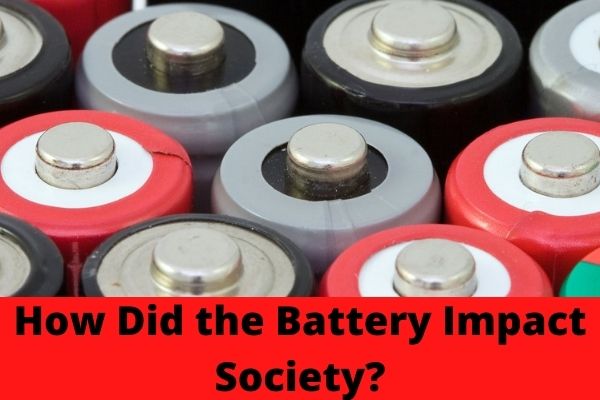Batteries are an essential part of our lives. We use them in cars, phones, laptops, remotes, and many other appliances. And leaking is one of the common problems you’ll notice with batteries—whether rechargeable or disposable.
And if you’re like most people, you might wonder why batteries leak.
In this article, we’ll dive deeper to discuss some of these battery issues and how to sort them out. But first, let’s understand how the batteries work.
How Batteries Work
A battery is made up of some chemicals, which react between themselves to create ions. These ions are gathered in the electrodes of the battery to act as the electrical power for the devices where you connect them. The chemicals inside the battery are-
- Zinc
- Manganese dioxide
- Potassium
- Graphite

Here’s Why Batteries Leak
Batteries can leak when in use and when they are not well disposed of. Normally, the batteries release gases as the chemical inside them react with each other. This chemical composition is what supplies the electricity you get from the batteries. In other words, the chemicals are called electrolytes.
And all batteries have a stronger casing that protects the gas inside the battery from escaping. But the casing starts swelling as you use the batteries for a very long time. This is because the gas accumulates in large volumes that can’t be contained anymore. It finds its way out either by finding loose points or cracks in the battery casing. At this point, you begin noticing the leaking.
The battery most likely starts leaking when it’s dying. However, there are different catalysts that could accelerate the leaking of your battery. They include:
- Using batteries for too long after their estimated lifespan
- Batteries that are kept connected in a device for too long can result in battery leakage, especially when the device is not used.
- While using multiple brands or voltages of batteries in one device.
- Manufacturer’s fault
How To Prevent Battery Leakage?
You can prevent most battery leakages. But when it comes to manufacturers’ fault, there’s nothing you can do about it. Luckily, if there’s a fault in your battery, you will realize it shortly after you have started using it. But if the battery is the perfect condition, the following are simple ways you can prevent leaking from your battery.
- Do not keep batteries in the device if you are not planning to use the device for a while. Keeping the batteries connected to the unused devices creates pressure on the batteries.
- Do not use batteries of various brands or power together. If the batteries connected together are different in power ratings, the higher-power ones will create stress on the lower-power ones.
- Keep an eye on the warranty period of the batteries. Batteries that are way past the warranty period have a good chance of becoming faulty.
Safety Measures when You Notice Battery Leakage?
If you find a battery leaked in your device, immediately try to take it out. Ensure you take the following precautions when removing the battery.
- Make sure to power off the device.
- Use gloves to avoid skin contact with the leakage chemicals.
- Do not heat the battery or remove it beside a fire.
- Clean any leakages or rust on your device that could have been caused by the battery leakage
- After the removal of the faulty battery, do not forget to wash your hands.
If your battery has a valid warranty period at that time, you can file a complaint and claim for an exchange. Claim the warranty as soon as possible.
Parting Shot
Battery leakages are common. They are caused by excess gases produced by the reaction of chemicals inside the battery—aka electrolytes. The leakages could be because of a manufacturer’s fault. Or it could be caused by excess gases that try to find their way out of the battery. This problem is common when batteries are dying. But there are also other factors that could cause this issue. The most important thing is to ensure you check your batteries regularly. Notice any swelling or abnormalities. This will help you deal with any issue that could eventually cause a serious problem.

